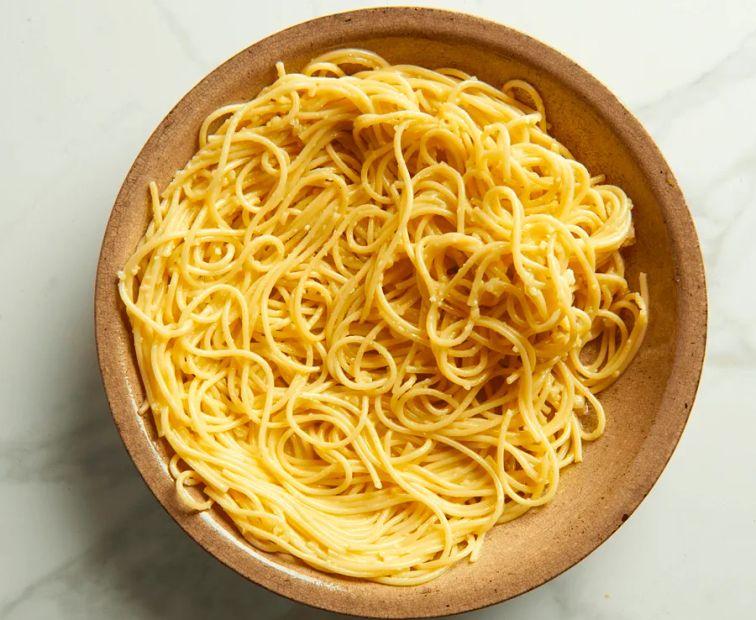What Exactly Does Al Dente Mean?

Pasta is a go-to dish that's quick and simple to prepare, especially when you're short on time. Whether you're following a pasta recipe or simply reading the instructions on a box of pasta, you’ve likely come across the term 'cook until al dente.' But what does al dente really mean, and how do you know when your pasta is perfectly cooked to this texture?
What Does Al Dente Refer To?
Al dente is an Italian phrase that translates to 'to the tooth,' meaning the pasta should have a slight firmness when bitten. It should be tender, yet firm and chewy—creating a balance between undercooked, hard pasta and overcooked, mushy noodles.
For most Italian chefs and home cooks alike, al dente is the preferred method for cooking pasta, no matter the shape or size. This technique is popular because when pasta is cooked al dente, it maintains its shape and texture, even when mixed with sauce, making it ideal for a variety of dishes.
Al Dente Isn't Just for Pasta
How to Check If Your Pasta is Al Dente
Since different pasta shapes have varying cooking times, there's no one-size-fits-all number to guarantee al dente results. Instead, aim to cook your pasta for a shorter time than the package suggests. This 'shorter time' can range from one to three minutes less, depending on your preferred level of firmness. Some pasta brands also provide a suggested al dente cook time on the packaging, which is a good guide to follow for that particular variety.
About three minutes before the recommended cooking time, start testing your pasta. The most reliable way to check for al dente is by tasting it. While some chefs say a small white dot in the center indicates it's al dente, others claim that the absence of the dot means it's perfectly cooked. The key is to taste it yourself to be sure.
When you bite into the pasta (carefully, to avoid burning your mouth), it should have a slight firmness and a bit of chew but still feel tender. This is the ideal al dente texture, signaling that it's ready to be removed from the heat.
Is It Possible to Cook Fresh Pasta Al Dente?
Fresh pasta is typically not cooked al dente since it's designed to be soft and smooth. However, if you prefer a bit of firmness, you can cook it to al dente. Fresh pasta cooks much faster than dried pasta, so it's easy to overcook, which means you need to watch it closely. When cooked al dente, fresh pasta will have a slight bite, though it will never be as firm as its dried counterpart.
Why Cook Pasta Al Dente?
The main reason people opt for al dente pasta is for its texture. Al dente pasta holds its shape better in sauces or baked dishes and helps sauce adhere more effectively due to the extra starch that remains on the noodles before it's fully absorbed into the water.
Another benefit of cooking pasta al dente is that it's gentler on your digestive system. Al dente pasta has a lower glycemic index than fully cooked pasta, making it easier to digest and helping to maintain stable blood sugar levels. Both undercooked and overcooked pasta are harder to digest for different reasons, but al dente pasta stays with you longer, keeping you fuller for a longer time.
Delicious Al Dente Pasta Recipes to Try
Now that you're a pro at cooking al dente pasta, it's time to put your skills to the test. Here are some top-rated pasta recipes to try next:
- Baked Ziti
- Spaghetti Aglio e Olio
- Stuffed Shells
- Cajun Chicken Pasta
- Creamy Garlic Pasta

1

2

3

4

5
Evaluation :
5/5